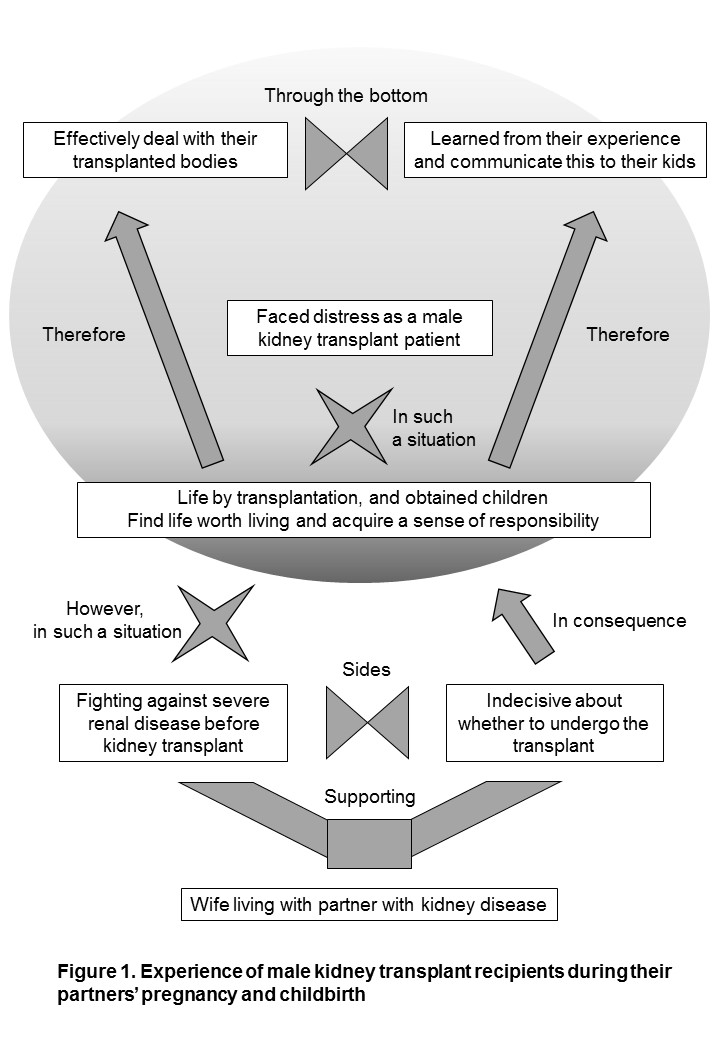Experience of male kidney transplant recipients during their partner’s pregnancy and childbirth
Yuki Yoshikawa1, Junji Uchida2, Keiko Maeda3, Akihiro Kosoku2.
1Faculty of Nursing, Shitennoji University, Habikono, Japan; 2Department of Urology, Osaka City University Graduate School of Medicine, Osaka, Japan; 3Nursing Department, Osaka City University Hospital, Osaka, Japan
Introduction: Male recipients are concerned about whether their newborns are affected by the immunosuppressants they take. Moreover, behavioral self-management can be changed due to their acquisition of a paternity role and the childcare burden. This study aimed to investigate the experience of male kidney transplant recipients during their partners’ pregnancy and childbirth and their methods of nursing their condition.
Materials and Methods: We performed semi-structured interviews and collected data from six Japanese males who underwent a kidney transplant after their partner had given birth. The data were analyzed using the Qualitative Synthesis Method (KJ Method). The study was approved by the Osaka City University and the Faculty of Medicine Ethics Committee.
Results and Discussion: The mean age of the participants at data collection was 40.3 ± 4.7 years, while it was 34.7 ± 5.8 years when the transplant took place. There were 493 total sentences. The Qualitative Synthesis Method revealed seven levels related to the pregnancy and childbirth experience of the partners of male kidney transplant recipients (Figure 1). Males who received a kidney transplant struggled with severe renal disease prior to the transplant. They also experienced indecisiveness about whether they should go through with the transplant. However, their lives changed because of the transplant and having children. This occurrence gave them a sense of responsibility and a reason to live. Nevertheless, they faced distress as kidney transplant patients. Their wives supported them during this experience. Therefore, they communicate to their kids what they learned from the experience while effectively dealing with their condition.
Conclusion: As the participants are male, their physician neglected to give them sufficient information about pregnancy. Hence, they were unable to consult about parenthood. The improvement in their sexual function, due to the transplant, influenced their determination to marry. It is necessary to offer information about pregnancy when choosing renal replacement therapy, give explanations based on evidence, and construct a counseling system.
This study was supported by the Japan Society of Private Colleges and Universities of Nursing, Grant in aid for young scientists..
[1] Tong A, Brown MA, Winkelmayer WC, Craig JC, Jesudason S. Perspectives on pregnancy in women with CKD: a semistructured interview study. American Journal of Kidney Disease. 2015; 66: 951–961.
[2] Concepcion BP, Schaefer HM. Caring for the pregnant kidney transplant recipient. Clinical Transplantation. 2011; 25: 821–829.
There are no comments yet...